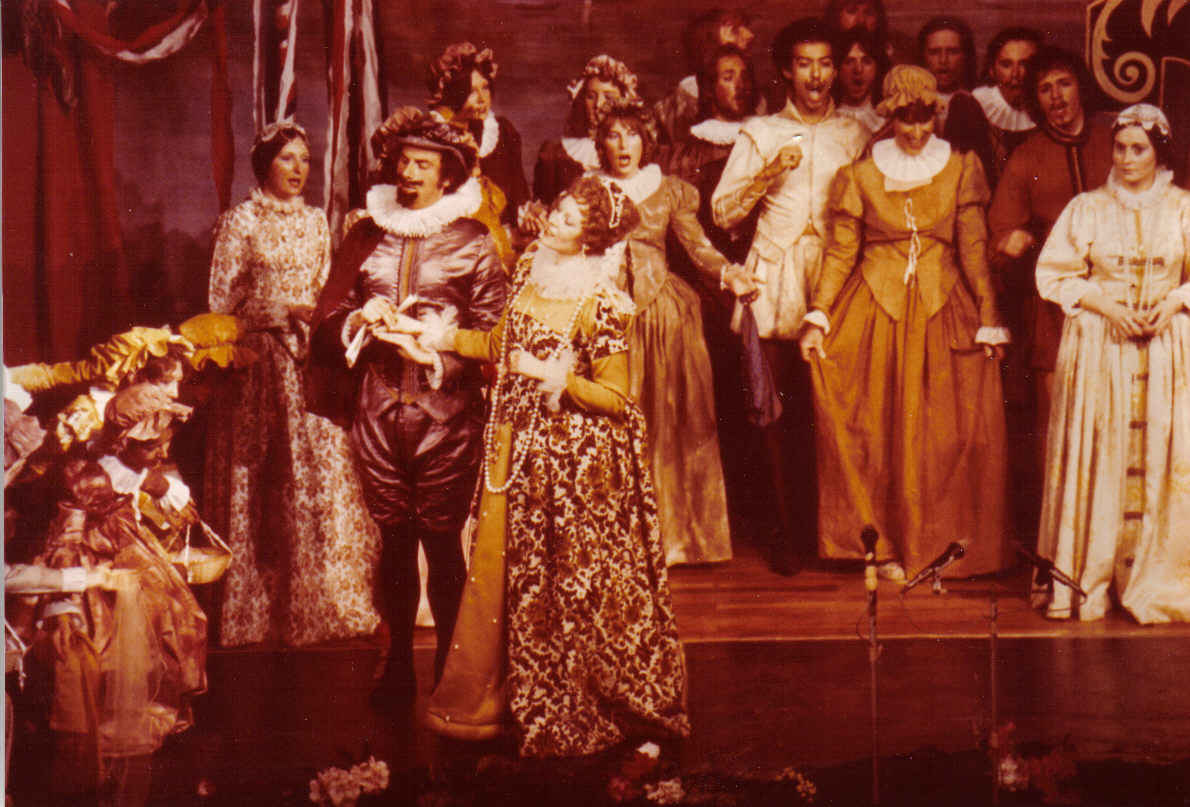The 1976 Stockwell College Merrie England

Cast
This recording was taken during a live performance given by Stockwell College Choir and Orchestra in May 1976. Although the musicianship is quite amateurish, the audience seems to enjoy it and the inclusion of dialogue makes it very enjoyable (even though there are moments when it's hard to tell what's going on and why the audience laughs for seemingly no reason). With a few exceptions, all of the dialogue is included (Wilkins' alphabet speech is entirely deleted, for example). The orchestra, particularly the strings, tend to be muffled and does not always seem clear with the material before them. Oftentimes, the singing is slightly grating and out of tune. I would bet that some of the actors are not singers at all, as their singing voices appear to be identical to their speaking voices. They are, however, not performers without talent. Susan Smith, as Bessie Throckmorton, is quite good and has quite a range, as is shown in her aria "Who shall say that love is cruel?". Others do quite well in their roles, including Lynn Robinson's timid but saucy Jill, the bumpkin wit shown by Michael Richards as Simpkins, or the tenderness (and subsequent rage) of the Queen, played by Georgina Leavey. The only one I would single out for a poor performance is Peter Williams, as Raleigh. His voice sounds rather raspy and full of phlegm and he cracks on several of the higher notes. (He may have had a cold when this recording was taken, which would account for his audible clearing of the throat just before "When true love hath found a man".) Unfortunately, his performance of "The English Rose" is quite laboured and he truly spoils it. Despite the possible cold he suffered, I enjoy this recording more than any of the others that are available because its personality makes up for its average musicianship.
All the music is included, with the exceptions of the "Imagination" song, the chorus at the end of the "Big Brass Band" number (sung solely as a duet and ending with the march), the chorus in the Egyptian dance and the usual omissions from the Act 2 Finale. Oddly, this recording includes the entire "Four men of Windsor" quartet and the exit music (pg. 235 in the vocal score).
The liner notes include a full synopsis and order of songs, as well as a photograph from the performance, history of the opera (which wrongly claims that German wrote more operas with W.S. Gilbert) and the entire production staff, right down to the three flutes in the orchestra and the printing consultant. This performance is a hoot, and while it may not be the first choice of many listeners, I enjoy it very much and it is the recording that I prefer to listen to in the car.
Issue History
Sound Systems, 1976. OPR 1-3. Stereo LP.
